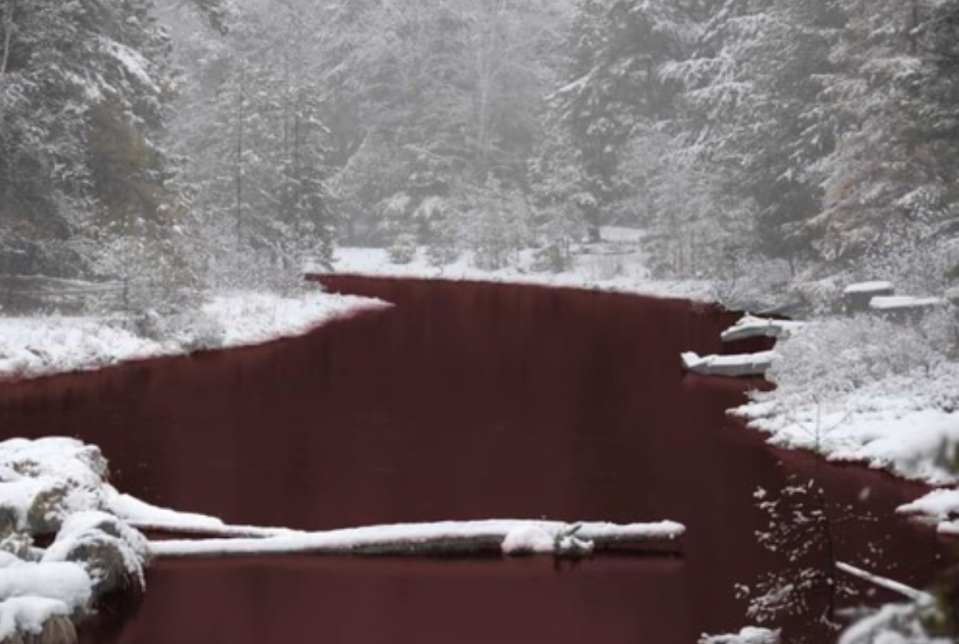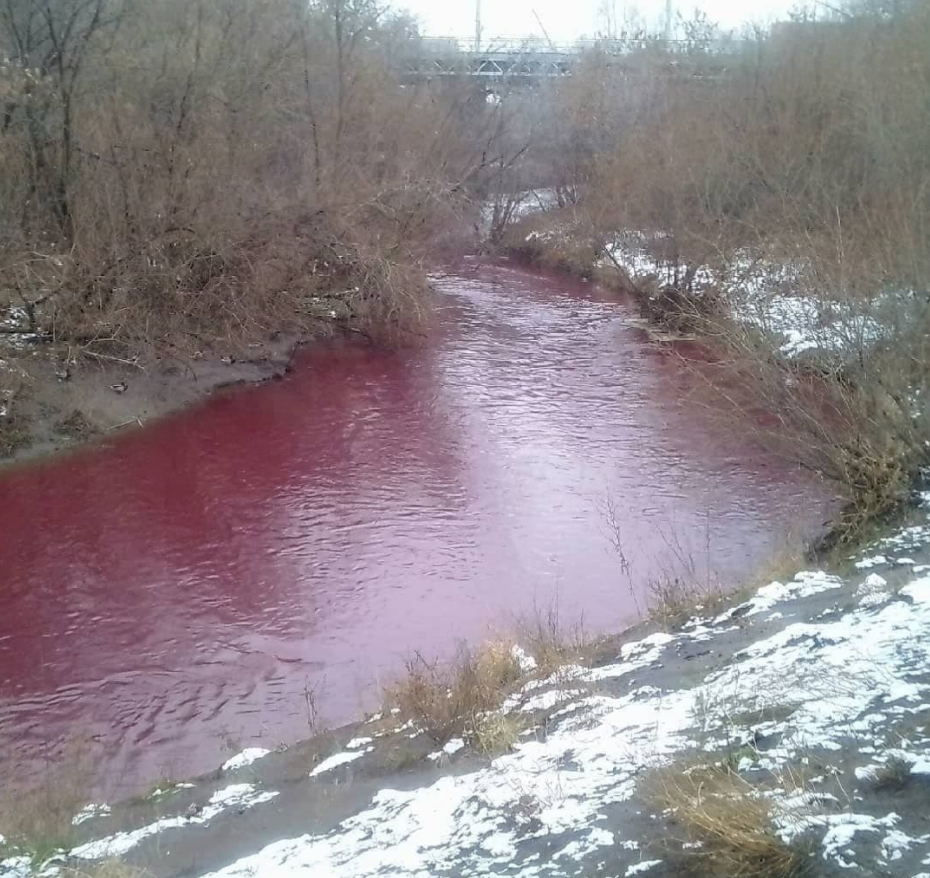'The water looks toxic': Alarm as rivers mysteriously turn blood red
Disturbing images of a river which has mysteriously turned blood red have emerged as locals say even animals are refusing to go near the water.
The Isktimka River in Russia has mutated months after a major fuel spill sparked concerns among environmentalists in June. However, the two incidents are not believed to be related.
The cause of the eerie scenes now at the Isktimka River remain a mystery, with city officials yet to determine the reason behind it.
“It’s like a borscht soup [a soup made with beetroot], but probably more poisonous,” a resident said, according to The Sun.
“The water looks toxic.”

Resident Andrey German also said there were no ducks in the river and were instead perched on the bank.
According to environmental officials, the red river has been caused by a blocked drain, however the chemical contributing to the bizarre scenes is under investigation.
“The city storm drainage system is a possible source of contaminated water,” deputy governor Andrei Panov of Kemerov said, according to The Sun.
‘Fuel is dissolving in the water’
It comes after several Arctic rivers turned red after a diesel reservoir collapsed at a power station outside the northern Siberian city of Norilsk in June, releasing 15,000 tonnes of fuel into a river and 6000 tonnes into the soil.
President Vladimir Putin even ordered a state of emergency to deal with the disaster.
When the major fuel spill in June caused rivers to turn red, Greenpeace Russia said it was the first accident of such a scale in the Arctic.
A spokesman for Russia’s Marine Rescue Service, which cleans up marine spills, also reiterated there hadn’t been a spill so bad in the Arctic ever before.
“It needs to be collected very quickly because the fuel is dissolving in the water,” he said.

The Ambarnaya River, which was affected by the spill, feeds into Lake Pyasino, a major body of water and the source of the Pyasina River that is vitally important to the entire Taimyr peninsula.
Russian fisheries agency spokesman Dmitry Klokov said restoring the polluted water system would take "decades".
"The scope of this catastrophe is being underestimated," he told TASS news agency, adding that most of the fuel had sunk to the bottom of the river and had already reached the lake.
The massive clean-up involved nearly 700 people.
with AFP
Do you have a story tip? Email: newsroomau@yahoonews.com.
You can also follow us on Facebook, Instagram and Twitter and download the Yahoo News app from the App Store or Google Play.



